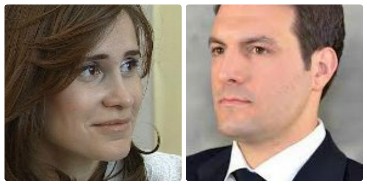ARMENIA DOES HAVE AN OPPOSITION / Interview with journalist Elena Chobanyan / March 2, 2015
We discussed with Executive Director of Americans for Artsakh (AFA), international affairs analyst and consultant Mark Dietzen.
– Mr. Dietzen, first of all, how can you evaluate the current situation in Nagorno-Karabakh?
– Following what was the deadliest year of the Nagorno Karabakh conflict since the 1994 ceasefire, the current situation in Nagorno Karabakh is an especially dangerous one. However, I disagree with those analysts who warn of a “war by miscalculation,” or a “war by accident,” on the Line of Contact. This line of thinking presupposes that military activities between Armenian and Azerbaijani forces – both offensive and defensive – lack effective control by the military chain of command.
On the contrary, I believe that the Armenian and Azerbaijani military leadership are deliberate in how they conduct military operations; operations which, despite inflicting greater casualties, are still carried out with sufficient restraint to avoid the resumption of all-out warfare. If war were to resume in Nagorno Karabakh, it would not be accidental. It would be an intentional resumption of an offensive war launched by Baku.
– What is the international community’s view on Armenian inner politics?
– President Sargsyan and Gagik Tsarukyan’s political quarrel is another reminder of the dominance of personalities in Armenian politics. Though a meeting between the two men resulted in Prosperous Armenia (BHK) calling off a protest against President Sargsyan and his government, we have not yet seen the end of this episode. The coming weeks will reveal the true extent of the damage this confrontation has inflicted on Mr. Tsarukyan’s political future, the BHK, and the now crumbling alliance between the opposition BHK, HAK, and Zharangutiun parties.
– How has the domestic political turmoil in Armenia (between the Republican Party of Armenia (HHK) and BHK parties) this month affected Nagorno-Karabakh and the Nagorno-Karabakh Conflict? How will Armenia’s domestic political situation affect the Minsk Group negotiations?
– History shows us that whenever there is internal turmoil in Armenia, Azerbaijan increases its attacks along the Line of Contact. Yet in this case, the political tumult in Yerevan cooled down before Baku could take advantage of it. So as things currently stand, I do not think that Armenia’s recent political strife will have any significant affect on Nagorno Karabakh, nor on the Nagorno Karabakh conflict and the Mink Group negotiations.
– It’s good to hear that the strife didn’t affect anything. However, does Armenia have an opposition at the present, or are the two political parties (HHK and BHK) the same thing? What purpose was served by the two parties’ “conflict”? Was it simply a show?
– Armenia does have an opposition: the Republican Party and the Prosperous Armenia party are not the same thing. But it is emerging from this ongoing political episode as an increasingly weakened opposition. Indeed, the conflict between the two parties was not a “show,” but an outward reflection of real competition between powerful politicians with conflicting political visions for Armenia, especially in regard to incompatible positions on constitutional reform which could make Armenia a parliamentary republic. I think we are only seeing the tip of the iceberg here. Beneath the surface is a struggle for political power after President Sargsyan’s term ends in 2018. And this is only the beginning.










